Critical Competencies
The four Critical Competencies and three Global Orientation courses are the foundation of the NUS College curriculum and are intended to be read within the first two years. Although students have some flexibility in choosing their pathway through the curriculum, you are encouraged to complete the foundational curriculum while in residence to take advantage of in-house academic resources, and to immerse yourself in our close-knit intellectual community.
The Critical Competencies courses – Thinking with Writing, Reasoning with Data, Computational Problem Solving, and Understanding the Social World: Singapore and Beyond – target foundational academic skills and feature transdisciplinary thinking and inquiry, preparing students with a toolkit of skills that they can apply in later courses.
The timetable and details of the foundational courses offered can be found here.
Thinking with Writing
Thinking with Writing comprises a suite of topic-based, interdisciplinary courses which aim to impart students with transferable skills in academic inquiry, writing and research. Syllabi are designed to encourage students to compare multiple disciplinary perspectives on complex issues, understand how disciplinary frameworks shape how a question is formulated and discern the strengths and weaknesses of individual disciplinary approaches. Students learn to read and evaluate arguments, formulate interesting questions, develop their own arguments and participate in an ongoing academic debate. All writing assignments are sequenced in such a way that they build on one another, each adding to the skills that students have gained from a previous assignment. Major writing assignments are scaffolded or systematically broken down into manageable tasks: students submit proposals and drafts for review, provide feedback to their peers, attend individual (or small-group) conferences with their instructor and finally, revise their drafts. Through the process of drafting and redrafting their essay, students have multiple opportunities to refine their ideas and improve their writing skills. The transferable skills in which students are trained serve as a foundation for their ongoing development at NUS College.
Course Leaders
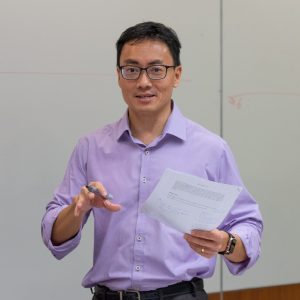
Yew Kong Leong
Yew Kong Leong
lyew@nus.edu.sg
Dr Yew Kong Leong is a Senior Lecturer in NUS College. He has joined since 2002 and is currently the coordinator of the University Senior Seminar (USR) programme. He had also previously served as a Writing and Critical Thinking (WCT) coordinator.
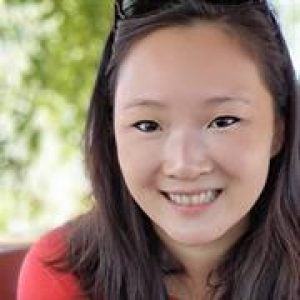
Amy Lynn Ramirez
Amy Lynn Ramirez
Amy is currently a lecturer at NUS College. She received her BA in Philosophy from Yale University and PhD in Philosophy from Cornell University. Her research focuses mainly on moral philosophy, feminist philosophy, and the philosophy of race. She also has interests in social and political philosophy and the philosophy of education. She has taught first year writing seminars at both Cornell and NUSC. Topics of these seminars have included exploring the concept of race and how education intersects with inequality. Amy is part of the thinking with writing team at NUSC.
Reasoning with Data
This course concerns how data are collected, organised, analysed, presented, and discussed to gain understanding and guide actions. Students build numerical intuition and skills in data visualisation, descriptive and inferential statistics, probability, and hypothesis testing. Each topic is explored with real-world data and contexts ranging from voting patterns to environmental quality. To facilitate problem-solving and practical application, the course uses both a flipped classroom approach and team-based learning with peers from diverse technical and quantitative backgrounds. Throughout the course, emphasis is placed on critical approaches and conceptual understanding alongside technical mastery.
Course Leaders
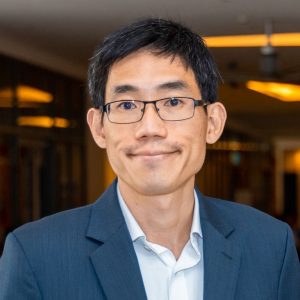
Edmund Low
Edmund Low
edmundlow@nus.edu.sg
Dr Edmund Low is a senior lecturer at NUS College. He received his PhD in Environmental Engineering from Yale University. His research interests lie in the use of computational modelling and data-driven tools, applying them to solve problems in public health, water resource management, and air quality in buildings. He has taught courses on environmental engineering, data science, and health and safety.
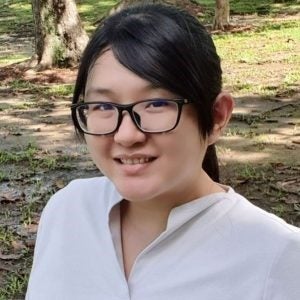
Loo Yoke Leng
Loo Yoke Leng
ylloo@nus.edu.sg
Dr Loo Yoke Leng obtained her PhD in Physics from the National University of Singapore. Her research interest is in Metamaterials and Metadevices.
Computational Problem Solving
Algorithms permeate every aspect of our 21st century lives, from simple daily activities like an internet search, to analysing complex problems like cybersecurity and climate change. This course’s main aim is to enable students to learn how computational methods can be used to formulate, solve, and analyse problems that relate to their everyday lives. What is possible and what is not? What are the limitations of these methods and how can they be used for current and future problems? How can problems be approached with the help of the current arsenal of digital technologies and which problems are being born from the development of those technologies? Students explore both technical and social aspects of some of the algorithms that impact their day-to-day lives. Examples might include, but are not limited to, Google’s PageRank algorithm, recommender systems such as those employed by video streaming services, social media platforms, and facial recognition technology.
Course Leaders
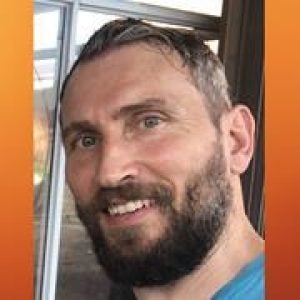
Philippe Raynal
Philippe Raynal
praynal@nus.edu.sg
Dr. Philippe Raynal is a Senior Lecturer at NUS College. He received his PhD in Quantum Information Theory from the University of Erlangen-Nuernberg, in Germany, after a Master in Theoretical Physics at the University of Marseille and a multidisciplinary Engineer’s degree at the École Centrale de Marseille, in France. Before joining NUSC, Dr. Raynal worked for the European Commission and taught at the University Scholars Programme, NUS. Dr. Raynal also worked as a postdoctoral research fellow at CEA in France, Max Planck Institute in Germany and CQT in Singapore.
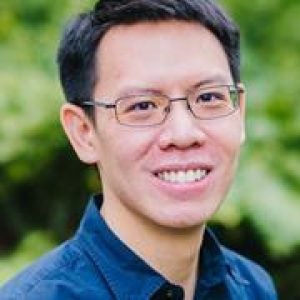
Derek Ho
Derek Ho
derekhyh@nus.edu.sg
Dr Derek Ho is a Lecturer at NUS College. He is currently teaching Computational Problem Solving, one of the pillar courses in the core curriculum.
Dr Ho received his BSc (Hons) and his PhD in Physics (theoretical) from the National University of Singapore. His research during graduate school was on topological effects in quantum-chaotic systems. For his postdoctoral research, Dr Ho focused on theoretically understanding electronic transport in two-dimensional graphene. Currently, he is continuing his work in two-dimensional materials and also looking into new avenues of inquiry, namely the quantum measurement problem and complex systems.
Understanding the Social World: Singapore and Beyond
The social world is complex. It comprises norms and relationships, identities, and institutions, which together mediate how it is experienced. This course explores social scientific approaches to critically understand these social forces and examines how they interact and influence each other, why they seem natural despite being constructed realities, and analyses their effects on the lived experiences of different peoples. In investigating these complexities, students develop critical insights into these issues as they gain a deeper understanding of Singapore and other societies undergoing rapid change brought forth by economic growth, globalisation, climate change, technological advancement, and growing inequality.
Course Leaders

Norman Vasu
Norman Vasu
nvasu@nus.edu.sg
Dr Norman Vasu is the author of Diasporas in Multiculturalism: Managing Difference (2004); co-author of Singapore Chronicles: Multiracialism (2018); editor of Social Resilience in Singapore: Reflections from the London Bombings (2007); and co-editor of Nations, National Narratives, and Communities in the Asia Pacific (2013), Immigration in Singapore (2014), and DRUMS Distortions, Rumours, Untruths, Misinformation, and Smears (2019).
He is a Fulbright Fellow, Arizona State University (2012); Senior Research Fellow, Takshashila Institution, India (2017), and Research Fellow, Daniel K Inouye Asian-Pacific Center for Security Studies (2018).
Prior to joining NUSC, he was a Senior Fellow at the S Rajaratnam School of International Studies (2005-2022) where he held positions such as Coordinator, Social Resilience Programme and Deputy Head, Centre of Excellence for National Security.
His education involved a canter around Britain: MA (Hons) Politics and Philosophy, University of Glasgow (1998); MSc (Econ) International Relations, London School of Economics (1999), and PhD International Politics, University of Wales, Aberystwyth (2004).
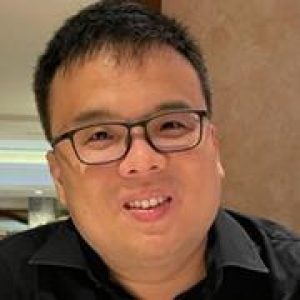
Shaun Lin
Shaun Lin
shaunlin@nus.edu.sg
Shaun Lin is Lecturer at NUS College of the National University of Singapore. Before this, he was a Max Weber Foundation – NUS Research Fellow at the Department of Geography, Faculty of Arts and Social Sciences (July 2020-July 2022) and a Postdoctoral Fellow under the same research fellowship (June 2017-June 2020). Shaun completed his DPhil at the Australian National Centre for Ocean Resources and Security (ANCORS), University of Wollongong. He received a Bachelor of Social Sciences majoring in Geography in 2011 from the National University of Singapore. Shaun serves as Social Media Editor for Space and Polity and Book Review Co-Editor for the Singapore Journal of Tropical Geography. He is also a member of the editorial board of the Journal of Geography in Higher Education and Political Geography Open Research. Within NUS, Shaun chairs the Educator Track Advancement group at NUS College.